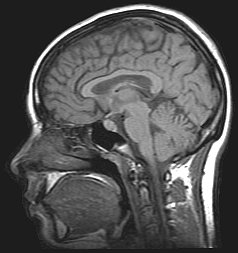The Teenage Brain and Its Development
The Teenage Brain
Have you wondered whether your teenager is dumb? I have heard many parents voicing their concern, they even wonder if something is wrong with their teenager. The general comment being, “What was he/she thinking?” They are often confused by the irrational or impulsive behavior of their brilliant teenager who tops the class and is otherwise smart. These teenagers seem responsible, dependable at times, while unpredictable and illogical at the others, leaving parents wondering if they really ought to trust them with anything. This unpredictable behavior of teenagers is often blamed on his/her raging hormones. However, Science helps you understand teenage brain development and how it works. Here are some important facts that you need to know to understand your teenager better. It would also help provide the necessary guidance to these teenagers to enable them to grow into well-adjusted individuals.

Inside the Teenage Brain
Research in the last decade, aided by MRI or magnetic resonance imaging, has helped study the growth and the development of the human brain. For years it was believed that the development of the human brain was almost complete by the age of twelve. A study by researchers from the National Institute of Mental Health, using MRI’s, has shown that development takes place into the mid twenties. Although the brain reaches 95% of its size by six years, the grey matter continues to grow into the teen years. There is heavy construction activity going on inside your teens brain. There are too many connections that are formed during this phase, many of which need to be streamlined and thinned out to make it efficient. Faulty connections are bound to happen as the teenage brain is still a work in progress.
Brain Development, Functions and Maturity
Regions
| Functions
| Development
|
|---|---|---|
Frontal lobe
| self-control, judgment, emotional regulation
| major reorganization in teen years
|
Corpus callosum
| intelligence, consciousness and self-awareness
| reaches full maturity in 20’s
|
Parietal lobes
| integrates auditory, visual, and tactile signals
| reaches maturity after 16 years
|
Temporal lobes
| emotional maturity
| continues to develop late into the teen years
|
How the Teenage Brain Works
During the teenage years, a major reorganization takes place in the brain which is called pruning, when the excess gray matter is thinned out. The brain branches out like a tree to make connections consolidates those connections that are being used and prunes those functions that are not used as often. This is also the time of consolidation of skills, interests and talents. This is often dubbed the ‘use or lose‘ stage.
However, most of this reorganizing work is happening in the frontal lobe, which is the seat of judgment, reasoning, organization, planning and execution of ideas, so your teen is left with limited resources. He/she is processing information through the limbic system (or that part of the brain called the seat of emotions) , without the advantage of being able to effectively use the higher cognitive functions that bring about a balance in the way one thinks and acts. The teenager is handicapped to a certain extent as his/her pleasure seeking nature, risk taking behavior, impulsive actions all find release and expression in a teenagers life. The timing of these changes coincides with the appearance of the secondary sexual characteristics and the hormonal activity of puberty. The teenager is faced with a huge task of mastering his/her emotions, thoughts, impulses, drives and angst of human existence to be able to find himself/herself. To remain focused and to find a path to pursue becomes a task of great magnitude for him/her.
Make The Best of Teenage Brain Development
As great development is happening in the brain of a teenager, it is the right time to expose your teenager to a wide range of interests. What they do and the interests they develop at this stage in life could possibly become hardwired later in their lives. Helping your teenagers think creatively, letting them explore and find their potential and talents in various subjects, would help them develop and discover their aptitudes. At little guidance in this area could be highly beneficial for your teen. Although the adolescent is still moldable or has a high level of plasticity, he/she is also at a stage to where they are able to choose and decide what skills he or she would like to acquire.
Teaching of subjects in a way that arouses their interest, gets their attention, and challenges their capability, would help teenagers make the best of their lives.
Parents need to discipline and direct their teenagers with a light but firm hand. They still need guidance and controls in place to keep them in check. Teen drivers face the biggest risk of accidental deaths and parental control needs to be firm in this area to safeguard their lives.
Emotional volatility is another area that may need a bit of working with. Teenagers have still not achieved emotional maturity and their wiring is not perfect yet. They may misconstrue your emotions and communication may be marred due to this emotional dissonance. Tact and care needs to be exercised in handling teenagers. Communication needs to be clear and simple. Rules and the consequence of breaking them should be clearly understood and implemented. Encourage your teenager to use “I” statements would help develop better emotional expression and empathy towards others.
Teens need to be understood and handled effectively. Their ability to resist temptations and urges is rather low as the higher cognitive skills are not fully developed. They do however achieve self control as the process of pruning advances. With a little help and discipline they learn to control their urges and make the right decisions. It would help if parents give teenagers limited options instead of open choices while making major decisions. It would help to remember that you are not taking away their rights, but guiding them in the process of decision making as they are still not ready for adult responsibilities.

Helping Teenagers the Brain Development
Having said this it would help to understand your teen better. Understanding is the building block of any relationship, and communication is the key to making it work. If your teen is unwilling to communicate, find the right time and space to do it. Never give up. Remember that your teenager is impressionable, so provide the right opportunities for the best impression, exert the right influence in your teenagers life and expose him/her to the best of learning experiences.
Encouraging your teenager to make decisions, within boundaries and limits, should help develop healthy individuals. This also means being supportive when your teenager fails, and encouraging him/her to keep trying.
How aware have you been of the brain development in teenage years
The developmental changes in an adolescent's brain could also work negatively for him/her. If teens are introduced to or take to drinking, smoking, drugs etc, their pleasure centers are stimulated, making them highly susceptible to addiction as their brains get wired to the sensations produced by these substances. It becomes more difficult to break these addictions than it is with adult smokers, alcoholics or addicts. Alcohol or other mind-altering substances impair the cognitive function in teenagers and their effects are longer lasting. Studies have proved that it takes days for your teen to recover from the effects of such mind altering substances, and while he/she is at school , he /she may not be learning as well as he/she normally would.
With these findings on teenage brain development, Science has once again proved the need for parental guidance in the life of a teenager. Your teenager needs a certain amount of guidance from you until he or she is in his/her mid twenties when they are ready to make their own decisions. A supportive, warm relationship is what your teenager needs, to grow into a well-adjusted individual.







